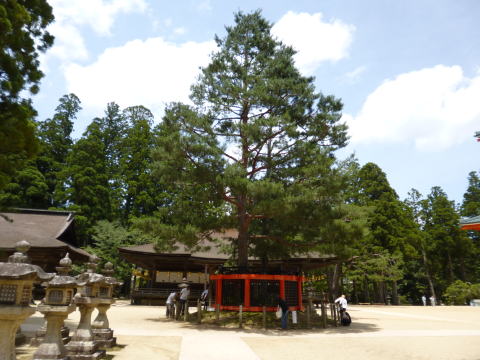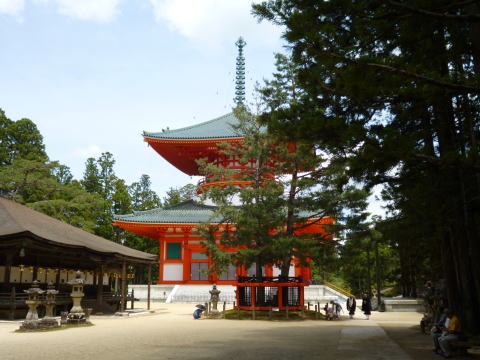![]()
![]()
Just as Kobo Daishi was departing from Tang China to return to Japan in
806,
he is said to have thrown a three-pointed vajra, a Shingon Buddhist ritual
item, toward Japan from the port of Mingzhou
with the wish of finding a place appropriate for establishing Shingon Buddism
in Japan.
After returning to Japan he serched for the study center of the Shingon Buddhism.
He came to Koyasan and found the three pointed vajra lodged in the pine
tree.
Since then, the pine tree has been called the Sanko no Matsu, or the three-pointed
Vajra Pine Tree,
and is popularly connected with faith in Kobo Daishi.
Pine needles usually come in clusters ranging from two to five needles,
the needles of Sanko no Matsu however, are in clusters of three, like the
three-pointed vajra it is named after.
Visitors today treat needles of Sanko no Matsu as talismans and keep them
as lucky charms.

